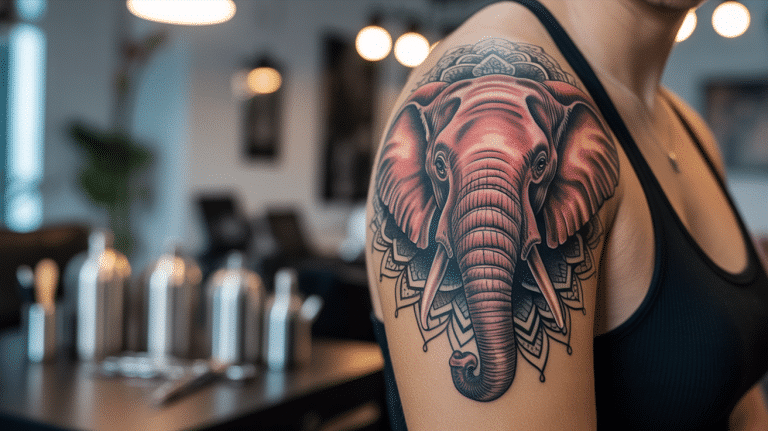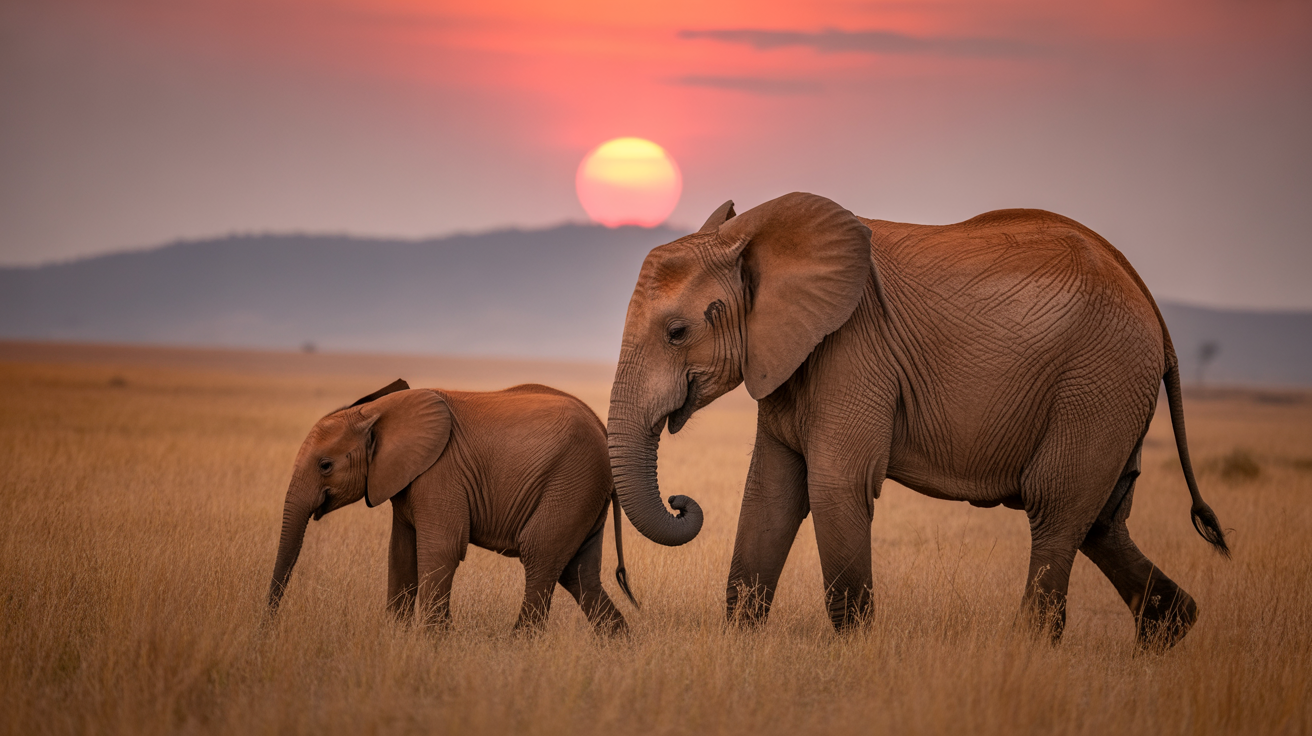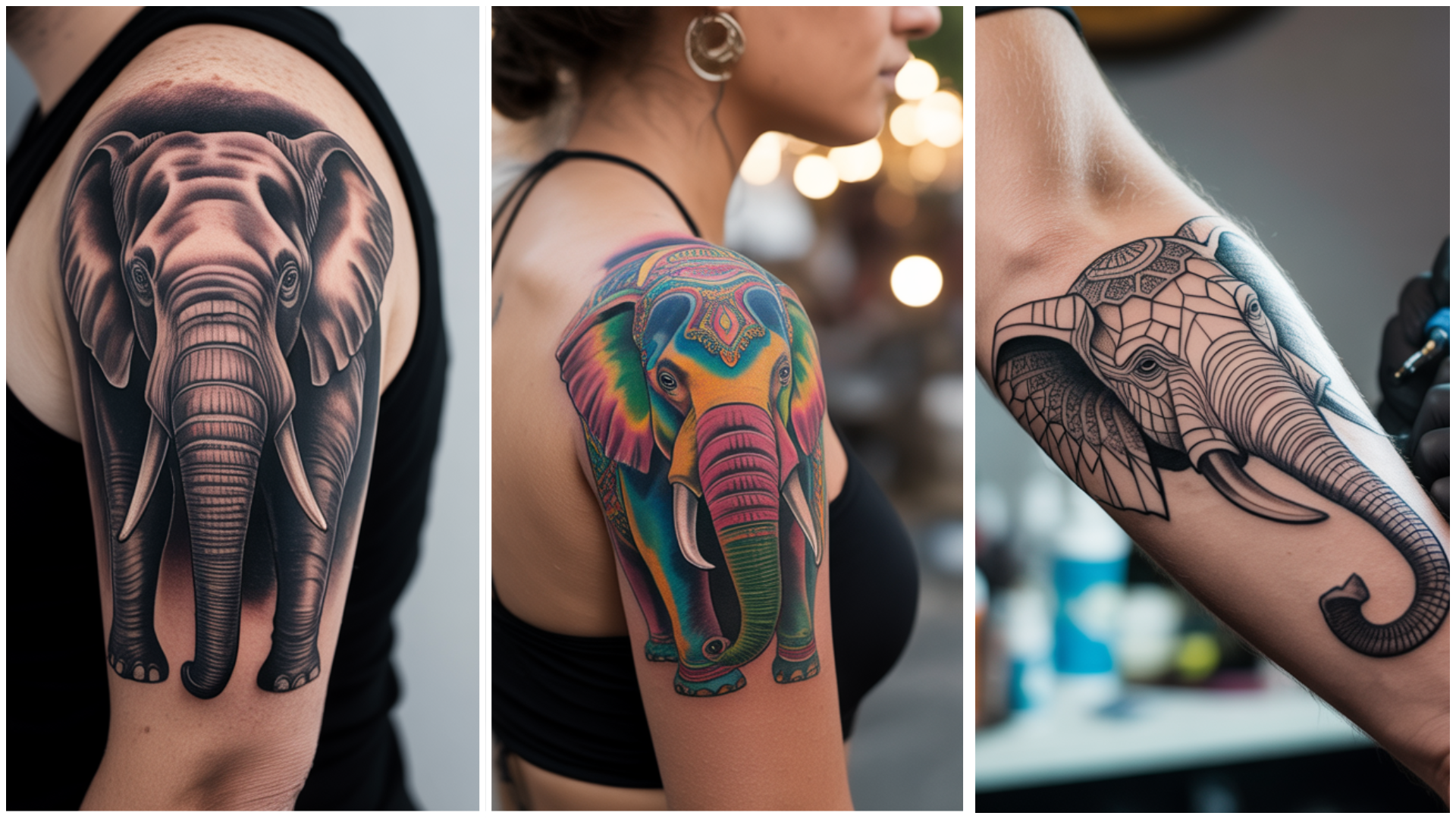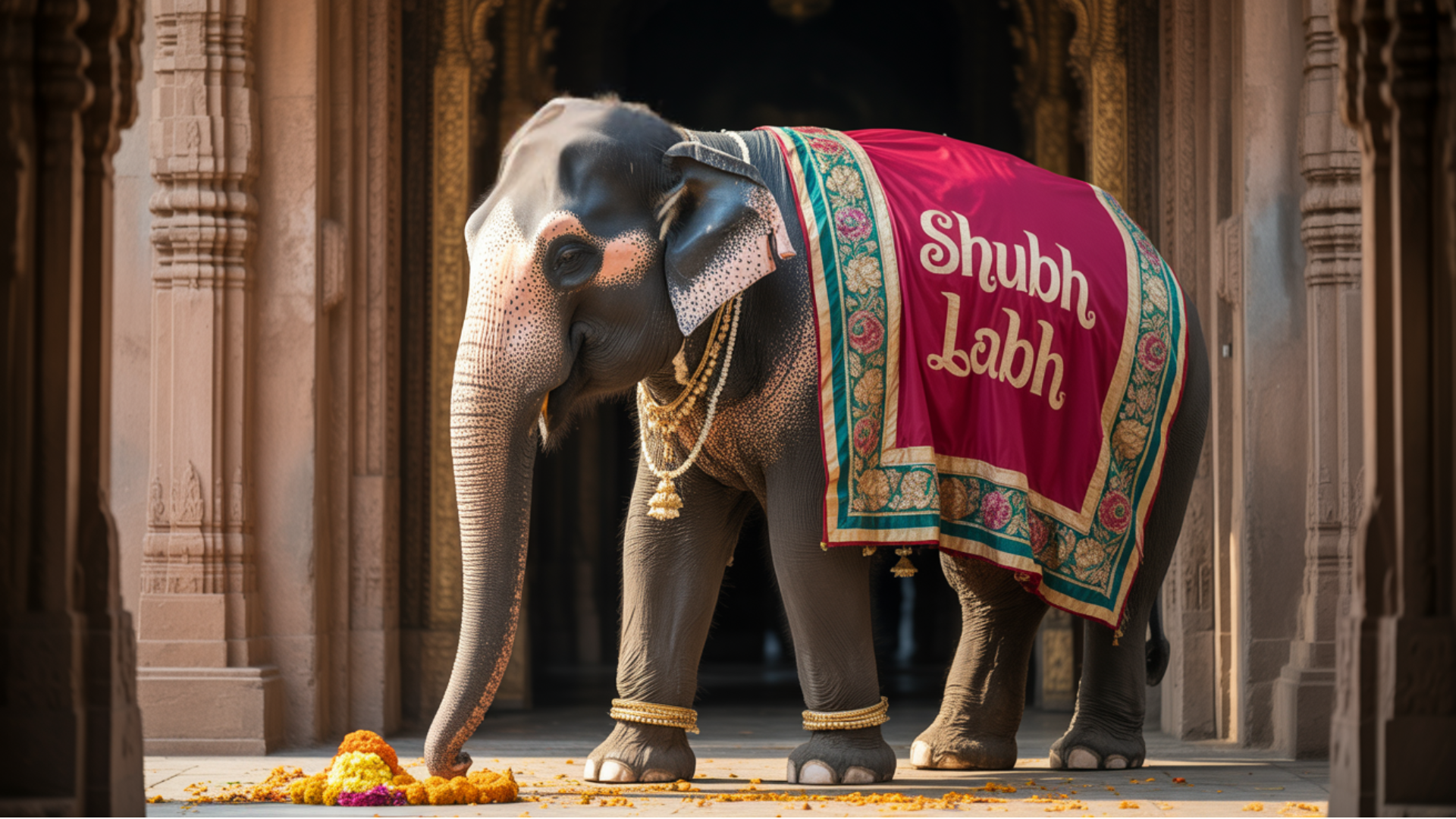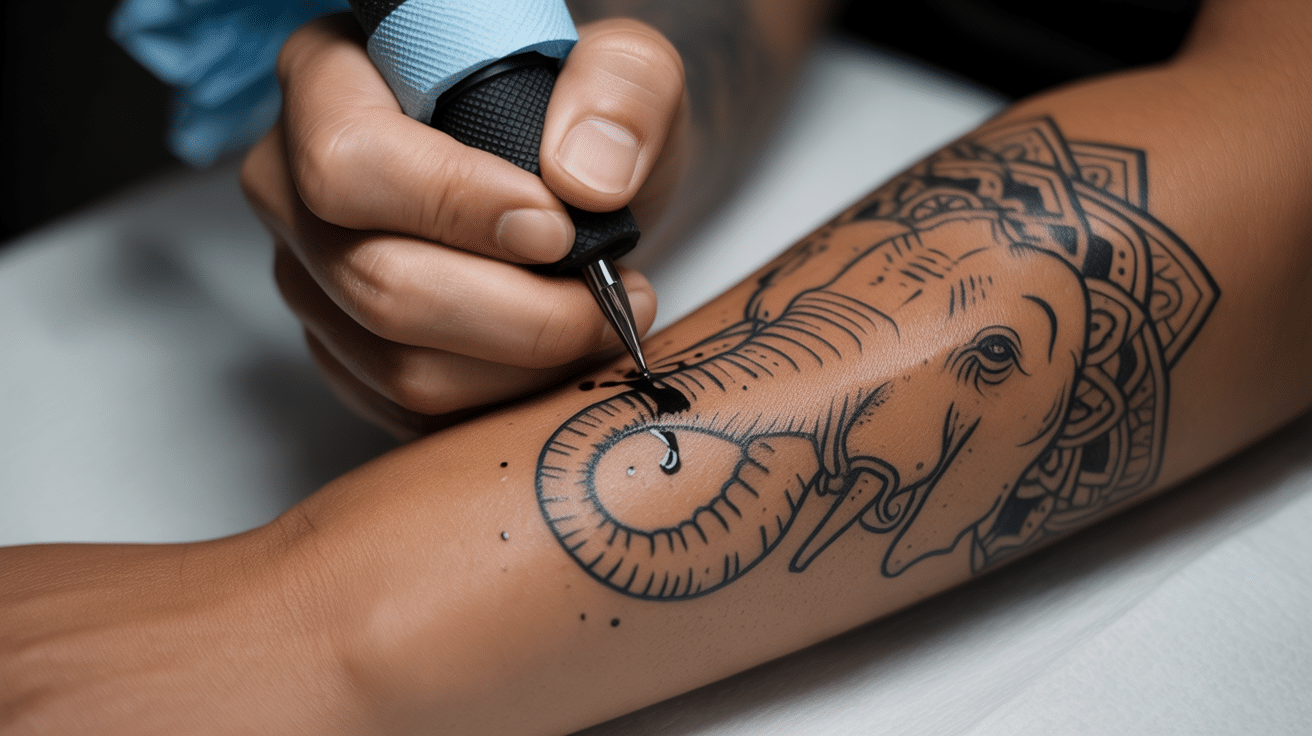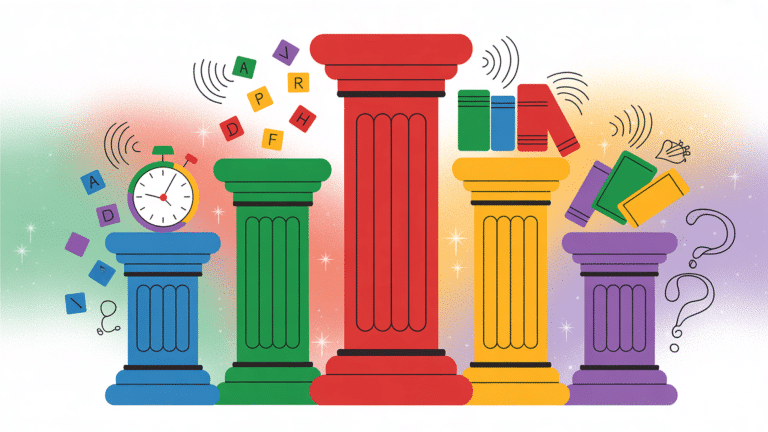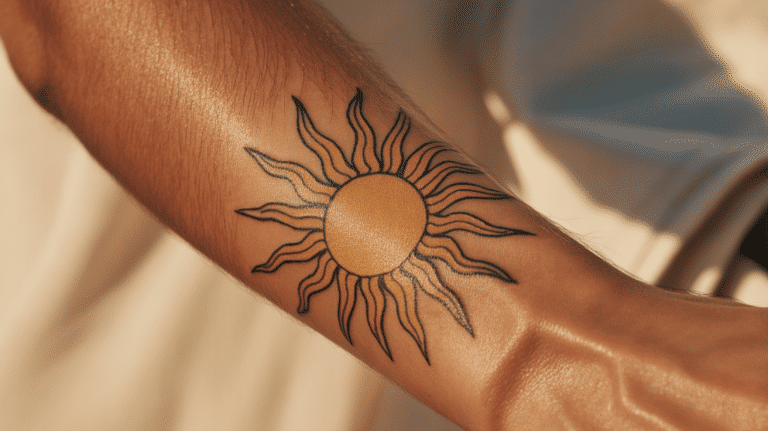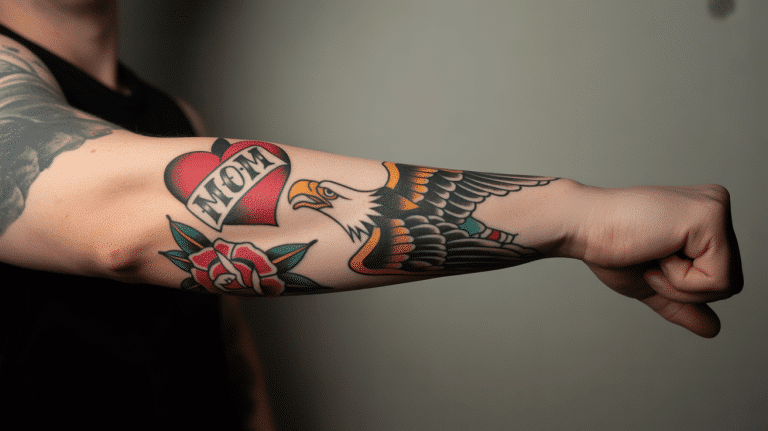What makes someone choose an elephant tattoo over hundreds of other designs? Picture walking through a tattoo shop and seeing walls covered with dragons, roses, and skulls. Then your eyes stop on something different.
A majestic elephant with its trunk raised high, looking both gentle and powerful at the same time. There’s something about elephants that speaks to people on a deeper level than just cool artwork.
These gentle giants aren’t just popular because they look impressive on skin. Elephant tattoos carry meanings that have connected with humans for thousands of years.
From ancient temples to modern cities, elephants represent qualities we all want more of in our lives. Ready to learn why these magnificent creatures have captured hearts and skin around the world?
Why Elephants Make Such Popular Tattoo Choices
Elephants aren’t your average animal tattoo. These creatures hold special appeal because they combine impressive physical presence with a gentle, intelligent nature.
This unique combination creates powerful symbolism that many people connect with on a personal level.
Think about it: elephants are massive and could easily be intimidating, but they’re known for being peaceful, family-oriented, and wise. This makes them perfect symbols for people who want to show strength without aggression.
From Hindu temples to African folklore, elephants have long been revered as symbols of good fortune, wisdom, and spiritual power across many cultures.
This deep symbolic foundation gives elephant tattoos lasting meaning that goes beyond current trends.
The Deep Symbolism Behind Elephant Tattoos
Elephant tattoos carry powerful meanings that connect to the most important aspects of human experience. Each symbolic element represents qualities that people strive to develop in their own lives.
- Strength and Power: People choose elephant tattoos as permanent reminders of their own inner strength and determination to overcome life’s challenges, especially after surviving difficult times.
- Wisdom and Intelligence: These creatures are known for their remarkable memory, problem-solving abilities, and thoughtful decision-making. An elephant tattoo can symbolize knowledge, careful consideration, and a lifelong pursuit of learning.
- Family, Loyalty, and Community: Their loyalty and unity make them perfect symbols for people who want to honor family ties, close friendships, or the importance of community support in their lives.
- Good Luck and Prosperity: In many cultures, elephants are considered bringers of good fortune, success, and positive energy. An elephant tattoo can serve as a personal talisman for luck and prosperity, helping attract abundance and happiness into the wearer’s life.
- Spiritual and Religious Symbolism: Elephants hold a sacred status in various religions, especially in Hinduism, where Lord Ganesha is revered as the remover of obstacles and the god of wisdom.
Popular Elephant Tattoo Styles and Designs
Elephant tattoos offer endless creative possibilities, with each artistic style bringing out different aspects of their symbolism.
From traditional designs to modern interpretations, the style you choose can enhance the personal meaning of your tattoo.
Realistic Black and Gray
Realistic elephant tattoos capture every detail of these majestic creatures, from their wrinkled skin to their expressive eyes. These designs work best in larger sizes where artists can include fine details like individual hairs and skin texture.
The black and gray approach gives elephant tattoos a timeless, classic appearance that ages beautifully and maintains clear symbolism over time.
Colorful and Vibrant
Colorful elephant tattoos often incorporate elements from their natural habitats – lush green forests, golden sunsets, or vibrant flowers. These designs might show elephants in their African or Asian environments.
Indian-inspired elephant tattoos frequently use bright colors, intricate patterns, and decorative elements that reflect the cultural significance of elephants in Hindu traditions.
Geometric and Mandala Styles
Modern geometric elephant tattoos combine traditional symbolism with contemporary artistic techniques. These designs might use triangular patterns, flowing lines, or mandala elements that create stunning visual effects.
Mandala elephant tattoos are especially popular, combining the elephant’s wisdom symbolism with the spiritual significance of mandala patterns representing wholeness and the universe.
Minimalist and Line Work
Simple line-work elephant tattoos use clean, minimal designs to capture the essence of these creatures without overwhelming detail. These tattoos work well for people who prefer subtle symbolism.
Single-line elephant tattoos are particularly trendy, creating recognizable elephant silhouettes with one continuous line that represents the unbroken journey of life.
Design Elements and Their Meanings
The specific details in your elephant tattoo can add layers of personal meaning to the overall design:
| Element | Meaning & Symbolism |
|---|---|
| Trunk Position | Upward trunk: Good luck, positive energy, optimism for the future. Downward trunk: Grounding, stability, deep connection to the earth. |
| Baby Elephants | Highlights family bonds, protection of loved ones, and nurturing instincts. |
| Lotus Flowers | Pairing elephants with lotus flowers symbolizes spiritual purity, rebirth, and the strength to grow spiritually through life’s difficulties. |
| Ganesh Elements | Adding features inspired by the Hindu deity Ganesh (like multiple arms or ornate attire) brings religious meaning and the spiritual power to remove obstacles from one’s path. |
Cultural Interpretations Around the World
Different cultures view elephants in unique ways that can add personal meaning to your tattoo:
Asian Traditions
In Asian cultures, elephants are often associated with royalty, wisdom, and spiritual power. White elephants are considered especially sacred and are symbols of purity and divine blessing.
Thai and Indian traditions often show elephants in elaborate ceremonial dress.
African Heritage
In African cultures, elephants symbolize strength, leadership, and unity within the community. They’re seen as wise elders who guide and protect their families, making them powerful symbols for people who value tribal or family connections.
Western Interpretations
Western cultures often associate elephants with symbols of memory (“an elephant never forgets”), good luck, and overcoming obstacles. The phrase “seeing pink elephants” has also created playful, colorful design interpretations.
Where to Place Your Elephant Tattoo
Choosing the right placement depends on the size, visibility, and personal significance of your elephant tattoo.
For those wanting to make a bold statement, back pieces, chest panels, and thigh tattoos work best for showing detailed elephant designs with background elements like realistic family scenes or elaborate mandala patterns.
Medium visibility options include shoulder, upper arm, and forearm placements that offer good space for detailed elephants while being easy to cover for work.
If you prefer something more subtle, wrist, ankle, and behind-the-ear tattoos feature simplified elephant silhouettes that serve as personal reminders while remaining work-friendly and carrying full symbolic meaning in compact, minimalist designs.
Choosing the Right Artist
Elephant tattoos require artists who understand both the technical aspects of tattooing large animals and the cultural significance behind different design elements.
- Look for Animal Expertise: Artists who specialize in wildlife tattoos or have experience with large animal designs often create more realistic and proportionally correct elephant tattoos.
- Check Cultural Knowledge: If you want religious or cultural elements in your design, find artists who understand the significance of symbols like Ganesh, mandalas, or traditional Asian elephant decorations.
- Review the Portfolio Details: Look for examples of elephant tattoos in the artist’s previous work, paying attention to how they handle details such as skin texture, trunk positioning, and background elements.
Caring for Your Elephant Tattoo
Proper care ensures your elephant tattoo heals well and maintains its symbolic power for years to come.
| Care Stage | What To Do | Why It Matters |
|---|---|---|
| During Healing | Follow your artist’s aftercare instructions carefully and keep the tattoo clean and moisturized | Large elephant tattoos need proper care to heal evenly and maintain detailed features like wrinkles and shading |
| Long-term Protection | Use sunscreen regularly and avoid excessive sun exposure | Protecting your tattoo from UV damage keeps the symbolism clear and prevents fading of important details |
| Daily Maintenance | Keep your skin moisturized and maintain overall skin health | Well-cared-for elephant tattoos continue to represent strength and wisdom through their lasting appearance |
Your Personal Symbol of Strength
Elephant tattoos carry meanings as deep and lasting as the creatures themselves. An elephant tattoo becomes more than artwork. It becomes a permanent reminder of what you value most.
Just like these wise creatures adapt to changing environments while maintaining their core nature, your tattoo can take on new meanings as you face new challenges and experiences.
Before you commit to your elephant tattoo, spend time thinking about which aspects of elephant symbolism speak most strongly to your heart.
Consider how you want your tattoo to represent your personal story and the qualities you want to strengthen in yourself.
Ready to honor these magnificent creatures with your own elephant tattoo?Read our blog to know everything you need to consider before getting a tattoo.

